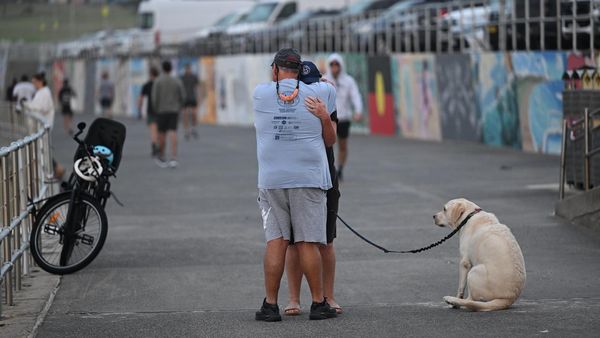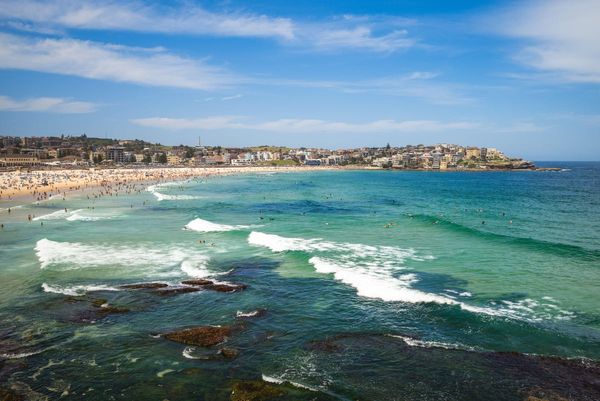TOPEKA, Kan. — Kansas Democratic Gov. Laura Kelly won reelection on Wednesday, achieving a historic victory in one of the hardest-fought contests in the country on promises of continued stable, moderate leadership.
Kelly secured four more years in office, becoming the first Kansas governor since 1968 to win a second term while the same party controls the White House. Kelly was especially vulnerable as the only incumbent Democratic governor on the ballot in a state won by former President Donald Trump.
Kelly defeated her Republican challenger, Kansas Attorney General Derek Schmidt, by positioning herself as a “middle of the road” politician. The message extended all the way to seemingly ubiquitous TV ads that showed her literally standing in the middle of a street.
NBC and CNN called the race for Kelly on Wednesday morning. The Associated Press also declared Kelly the winner Wednesday afternoon.
Schmidt has not yet officially conceded the race.
Kelly led Schmidt 49% to 48% early Wednesday after all precincts had reported. Kelly won the state’s two largest counties — Johnson and Sedgwick — even as counting continued in rural areas more favorable to Schmidt. He trailed Kelly by less than 15,000 votes early Wednesday.
Kelly declared victory in a statement just before 11 a.m. local time Wednesday, after walking up to the edge of claiming a win in remarks to supporters at the Topeka Ramada just after midnight.
“I spoke a lot in this campaign about my middle-of-the-road approach, because governing from the middle is important. Everyone is tired of hyper-partisanship and vitriol in our politics — and everyone’s tired of being at each other’s throats. That’s why those nasty, negative, divisive ads against us backfired,” Kelly said, referring to ads by Republican groups that slammed her for vetoing bans on transgender athletes and painted her as a soft-on-crime liberal.
Republicans had been pinning their remaining hope of a turnaround on ballots arriving after Election Day. Postmarked mail ballots that arrive by Monday will continue to count. Normally, the deadline is Friday but was extended this year because of Veterans Day.
Wyandotte County, which is Democratic-leaning, was still waiting on roughly 1,600 mail ballots as of Wednesday.
Trump, who endorsed Schmidt, and other Republicans have repeatedly attacked mail voting in the last two years. But early Wednesday Kansas Republican chair Mike Kuckelman had pointed to the late-arriving mail ballots as Schmidt’s best remaining hope.
“You’ve got to hang on until we have all the votes counted,” he said.
Independent Dennis Pyle, a conservative state senator who left the Republican Party and who painted both Schmidt and Kelly as too liberal, had 2% of the vote — more than 19,000 votes that could prove crucial to the outcome of the razor-thin contest.
Kuckelman said he was frustrated by votes Pyle had seemingly pulled away from Schmidt.
“Pyle was always just a spoiler. Pyle has never had a clear path to victory,” Kuckelman said. “That’s disappointing because it can really affect an outcome.”
Though Republicans were expected to perform well nationwide, Kansas stood the chance of being an outlier. Kelly, the only Democratic governor running for reelection in a state carried by Trump in 2020, had been a relatively popular governor in her first term.
Polls had predicted the race would be exceedingly close. A week before the election, a survey from Emerson College Polling and Nexstar Media Group gave Kelly a lead of 3 percentage points, a statistical tie as it fell within the margin of error.
Schmidt, speaking to supporters at Hotel Topeka just before midnight, thanked them for their support and told them to go home.
“Looking at the number of counties that are not yet fully reported and accounted for, as well as the number of anticipated late arriving mail ballots, it’s not going to be called tonight,” Schmidt said. “Thank you for sticking around later this evening. We will, unfortunately, have to wait a bit longer.”
Schmidt made no mention of what it would take to overcome the vote deficit against Kelly.
Kelly’s running mate, Lt. Gov. David Toland, set the stage early for a long night. Early in the evening, he sounded an optimistic note but acknowledged the race would be tight.
“The polls have been neck and neck from the very beginning. We know that tonight is going to be close,” Toland said.
Republicans had also braced for a long night. Throughout the evening, attendees exuded a sense of cautious optimism even as Schmidt remained behind in the race for governor.
“I was kind of hoping for a little bit better preliminary results, but I think if anything Kansas has taught us we’ve gotta wait until the final ballot is counted because there are some really close races,” said state Rep. Adam Smith, a Weskan Republican.
Courting voters, Kelly had vowed to continue what has been the central project of her tenure — moving Kansas past the fiscal crisis that developed under Republican Gov. Sam Brownback — and pointed to a record budget surplus and fully funded public schools as proof that she had delivered results.
Her victory comes after Kansas voters in August overwhelmingly rejected an amendment that would have eliminated abortion rights to the state constitution just weeks after the U.S. Supreme Court overturned Roe v. Wade. The outcome energized Democrats in an otherwise favorable year for Republicans.
“They voted for a woman’s right to make her own — “ Kelly said before she was drowned out by cheers.
Schmidt, who has been the state attorney general for 12 years, had sought to tie Kelly to discontent with Democrats across the country. His messaging hinged on inflation, President Joe Biden and Kelly’s decisions early in the pandemic to shut down schools and businesses.
Schmidt also repeatedly highlighted his support for banning transgender athletes from girls’ sports, a position that put him at odds with Kelly, who twice vetoed a ban passed by the Republican-controlled Legislature. Schmidt promised to sign a ban if elected.
Kelly and her allies at times appeared happy to make the race into a referendum on her leadership. Democrats argued Kelly had worked to rebuild gutted state agencies and pointed to her decision to sign a law that brought state funding of public schools into compliance with the Kansas Constitution for the first time in a decade.
Kelly focused on her own record and warned voters a vote for Schmidt would be tantamount to returning Kansas to the days of budget shortfalls brought on by former Gov. Sam Brownback’s tax cuts.
She promoted her record of economic development, especially Panasonic’s decision to locate a sprawling electric battery plant in Johnson County, though concerns have been raised over whether Kelly has been sufficiently transparent with the public over the dealmaking involved in securing the plant.
Kurt Kiebler, a 53-year-old Overland Park resident, said Kelly was moving Kansas forward. Kiebler, who attended a rally in Shawnee for the governor and other Democratic candidates on Sunday, called the prospect of a Schmidt governorship “dangerous.”
“I see us reverting back to the economy that Sam Brownback had,” Kiebler said.
Gary Pergeson, 43, a senior analyst and contractor for the Navy, voted in west Wichita. He is a Republican but said he voted for Kelly, as well as Chris Mann, the Democratic candidate for state attorney general.
“Laura Kelly I believe has done a pretty good job. The state is in the black so we are doing pretty well as a state,” Pergeson said.
Pergeson emphasized the importance of continuity in government, especially coming out of a pandemic. Schmidt, he said, “was not really offering solutions.”
Schmidt sought to make the race a referendum on Kelly and, by extension, Biden and the Democratic Party as a whole. Schmidt portrayed Kelly as soft on crime and as to the left of residents, pointing to her vetoes of transgender athlete bans.
Late in the race, Schmidt tried to link Kelly to drag shows held in Kansas — an attack that factually fell apart hours after it was made.
“We believe Derek Schmidt has a biblical worldview,” said Dorothy Gardner, a 76-year-old voter from Louisburg who spoke to a reporter at a Schmidt rally in Bucyrus on Friday. “The Democratic Party has changed and they no longer have the family values I was raised with.”
Schmidt’s campaign strategy appeared calculated to build enthusiasm among conservatives even as it risked ceding moderate Republicans and independents to Kelly. He rolled out a video of Trump and welcomed appearances by high-profile Republicans such as former Vice President Mike Pence, Virginia Gov. Glenn Youngkin and Florida Gov. Ron DeSantis.
The attention to the conservative base came as Schmidt contended with a right-wing opponent in Pyle, a state senator from Hiawatha who frequently clashed with Republican leadership in the Senate. Pyle, who left the Republican Party earlier this year, labeled himself the true conservative in the race.
While Pyle ran a shoestring campaign, he received assistance late in the race from a Democratic-linked group that paid for pro-Pyle ads.
“It wouldn’t be near as close if the independent wasn’t in there,” state Rep. Brenda Landwehr, a Wichita Republican, said last week. “I wouldn’t be truthful if I said I wasn’t concerned about it. He said he wanted to divide the votes and that’s what he’s doing.”
———
(The Wichita Eagle’s Michael Stavola contributed reporting.)
———







